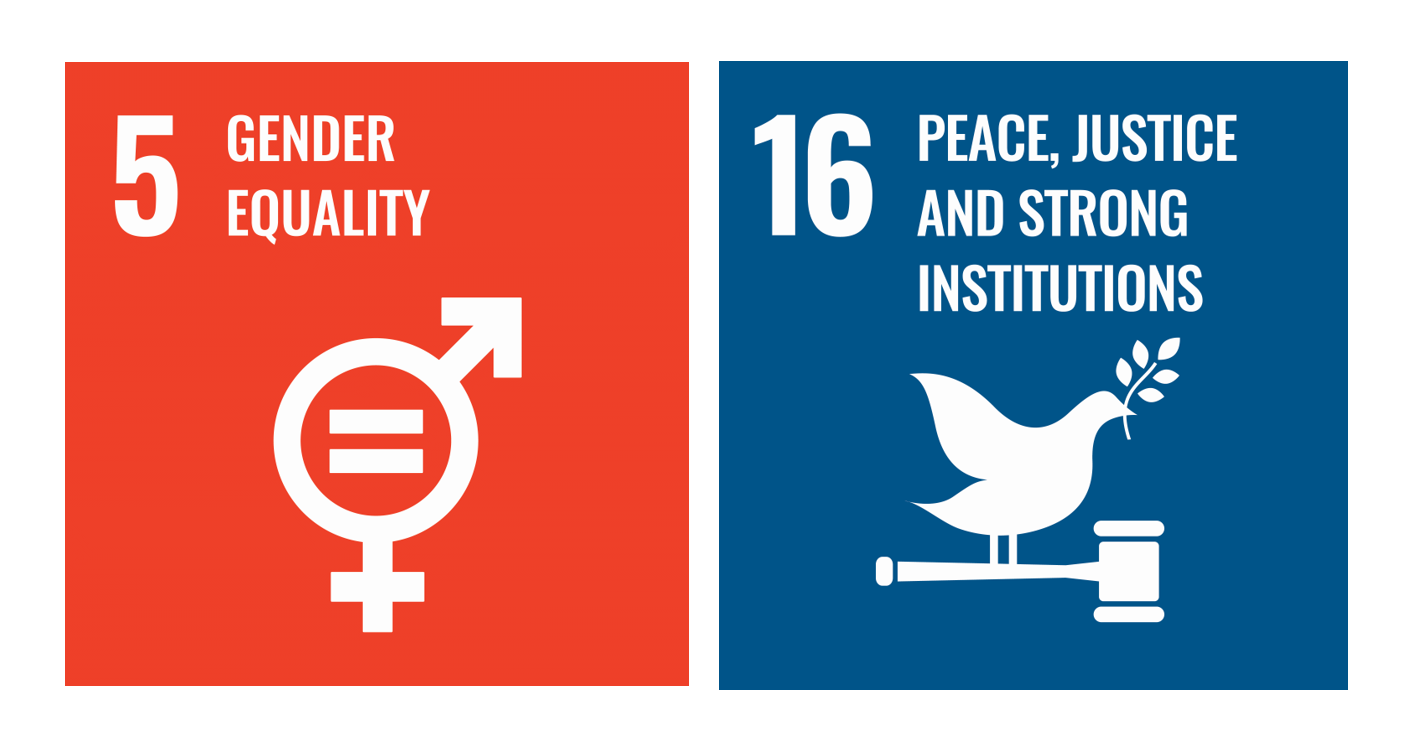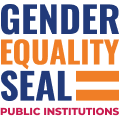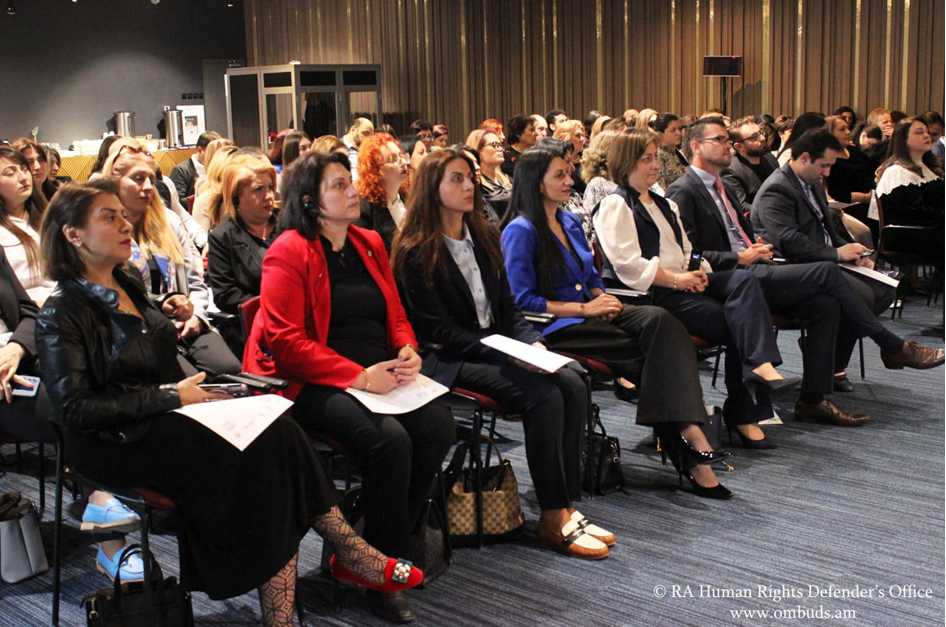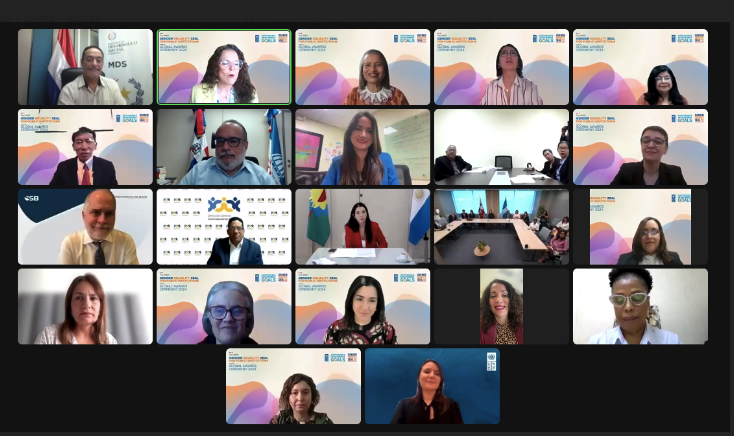The 2023 Conference on SDG 16 took place in Rome from 30 May to 1 June under the heading of SDG 16 as a compass for navigating intersecting crises. Jointly organized by the United Nations Department of Economic and Social Affairs (DESA), the International Development Law Organization (IDLO) and the Ministry of Foreign Affairs and International Cooperation of Italy, the conference brought together representatives of governments, international organizations, civil society and academia to identify solutions to accelerate progress towards SDG 16 and leverage its enabling effect on the Agenda 2030, with an overarching focus on the growing challenges of global conflict and shrinking trust in public institutions.
Trust in public institutions is at the core of SDG 16, emphasizing the need for effective, accountable and inclusive institutions that respond to the needs of all citizens. Public institutions must live and breathe by the principles of inclusive governance to earn the trust that enables them to deliver effective policies, reinforce the social contract and uphold the principles of democracy.
Shrinking trust in public institutions is a grave concern in the wake of the Covid-19 pandemic and other multiple intersecting crises that require effective and coherent public policies under a whole-of-society approach. Furthermore, eroding trust in public institutions may be a symptom of severed ties between citizens and their governments – even a manifestation of democratic backsliding. In fact, it is estimated that only three out of ten people live in democratic systems now compared to five out of ten in 2010.
Restoring confidence in governance and public institutions is essential and requires time, commitment, and genuine efforts to address people’s concerns and aspirations.
From the opening remarks of Ms. Jan Beagle, Director General of IDLO
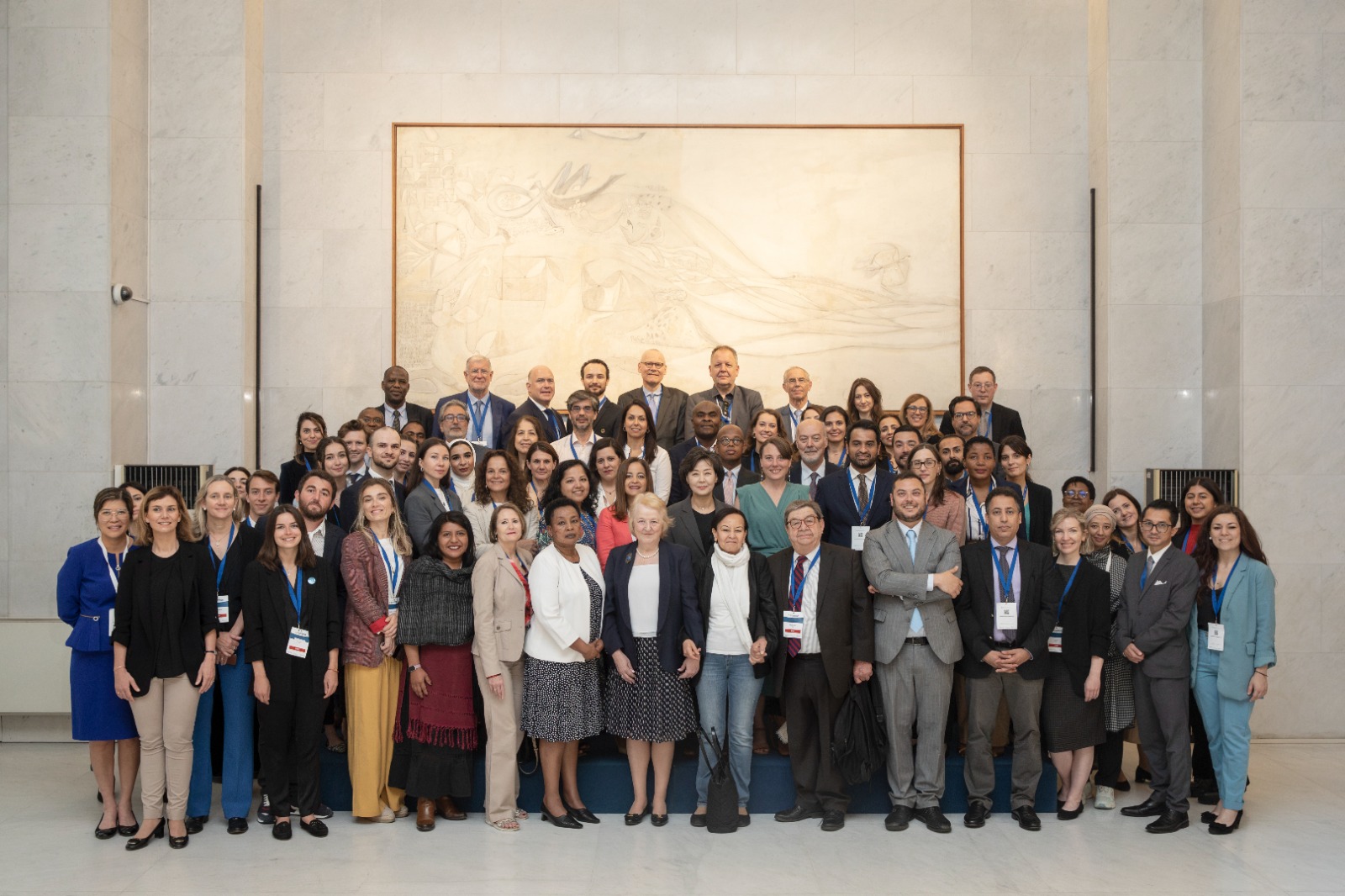
Gender equality and SDG 16 are interconnected in a myriad of ways
Gender equality is the hallmark of inclusive governance. Public institutions that adopt gender equality as a fundamental principle across all functions and actively seek to eliminate gender gaps contribute to the empowerment of women and girls which is vital for building peaceful and just societies. Furthermore, gender-responsive institutions are more representative, transparent and responsive to the needs of their diverse constituents and support active participation of women in decision-making processes and policy choices, thereby building trust and consensus to administer effective public policies.
The Seal as an SDG accelerator
During a parallel session entitled “Promoting gender equality, inclusion, and participation” on the second day of the SDG 16 Conference, Ana Landa Ugarte, Global Manager of the UNDP Gender Equality Seal for Public Institutions, presented the Gender Equality Seal as a tried and tested tool to help build capacities and recognize public institutions that make meaningful progress towards SDG 16 (and SDG 5). Ana further shared UNDP’ lessons learned from decades of UNDP’s work supporting public institutions all over the world for effective gender responsive public policies.
From this experience what we have learned that accelerating gender mainstreaming in an effective way requires going beyond just capacity building and tools in a traditional way.
Ana Landa Ugarte, UNDP Gender Equality Seal for Public Institutions Manager
A change towards gender responsiveness requires tools that stimulate and strengthen political will, technical skills and help to transform the organizational culture. Public institutions also need instruments and mechanisms that help them break institutional silos and institutionalize effective CSO engagement in the delivery of public policies and services. National, regional and global reputational value to the institutions that really commit and provide transformative results on addressing gender gaps is also required. The Seal has been designed to respond to these needs.
The Seal is designed to help institutions integrate gender equality into their policies, practices and operations and in the process demonstrate their commitment to promoting gender equality and fostering an enabling environment for women’s empowerment. This directly supports the goals of SDG 5 (Gender Equality) and SDG 16 (Peace, Justice, and Strong Institutions) and reinforces the interlinkages between the two.
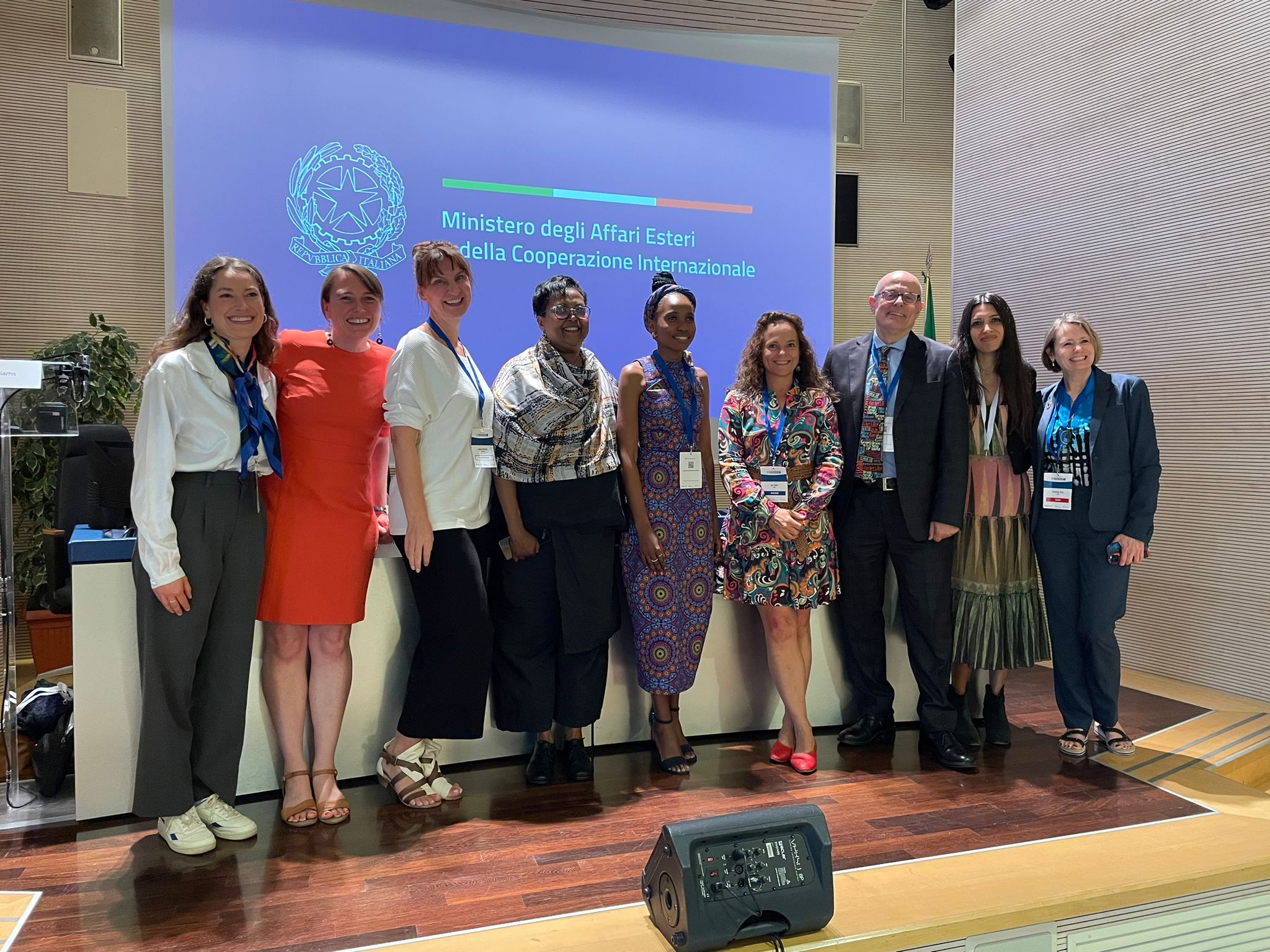
In her closing remarks, the Director General of IDLO called upon the global community to harness the transformative power of SDG 16 to impact people’s lives. This requires collective action and efforts to instill the principles of inclusive governance to create whole-of-society solutions. Furthermore, she underscored the need to stand with vulnerable groups everywhere and to empower women and girls, including removing the legal, economic and social barriers they face in participating equally in public life.
On the Gender Equality Seal for Public Institutions
The Seal works across five interconnected areas of institutional performance to advance gender equality, namely (i) planning and management, (ii) gender equality architecture and capacities, (iii) enabling work environment, (iv) participation, partnerships and accountability, and (v) results and impacts of public policies. Participating institutions are provided with a process blueprint and get access to a broad set of working aids and resources, including membership to an online community of practice of institutions around the world that are committed to advancing gender equality through implementing the Seal.
Over 75 public institutions across five regions and 27 countries from different sectors are implementing the Gender Equality Seal for Public Institutions. Reach out to us if you would like to learn more.
